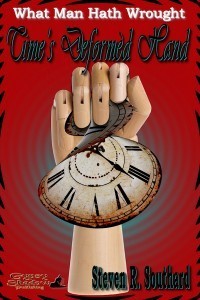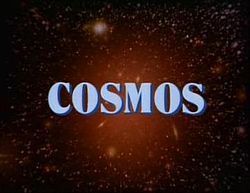Steven R. Southard's Blog, page 65
December 21, 2014
Conflict, the Necessary Evil
Ever notice how fiction seems full of conflict? Characters hate each other, fight each other, struggle with problems, strive to survive, etc. Why can’t they just get along together and have nice, trouble-free lives? After all, that’s what we real people want for ourselves, right?
Necessity
You may go ahead and write stories where nothing bad happens, where characters are always kind and thrive in a stress-free environment.
Just one little problem with that notion…no one is going to read those st...
December 14, 2014
A Tight Plot
“Tight plotting” is the term I use where everything is necessary to the plot and the story moves along without tangents or superfluous references. I didn’t invent the term, but it’s not yet in widespread use.
First let’s examine the opposite—loose plotting—and we’ll be able to make the contrast. Loose plotting is more common in novels than in short stories, and somewhat common in movies. Why? In a novel there’s an expectation of length, and a tendency for the writer to get a related idea and d...
December 7, 2014
Secrets of the Past
Is it possible that some amazing things happened in historical times, but never made it in the history books? Today I’ll discuss the subgenre of fiction known as secret histories.
Wikipedia’s entry provides a good definition: “A secret history (or shadow history) is a revisionist interpretation of either fictional or real (or known) history which is claimed to have been deliberately suppressed, forgotten, or ignored by established scholars. Secret history is also used to describe a type or gen...
November 30, 2014
What a Disaster!
Today I’m exploring the world of disaster fiction. There are many, many stories dealing with disasters, from local misadventures to world-wide calamities. I’ll discuss frequently occurring themes in disaster fiction, as well as the reasons people read it. That might help you decide if you want to write such a tale.
 First, no disaster story is truly about the disaster. If you want to write about disasters, try non-fiction. As I’ve said before, fiction is about the human condition, so your disas...
First, no disaster story is truly about the disaster. If you want to write about disasters, try non-fiction. As I’ve said before, fiction is about the human condition, so your disas...
November 23, 2014
As Hobbies Go…
For me, writing fiction is a hobby. Maybe it’s the same for you. I figured I’d do a little comparison of writing to other hobbies you (and I) might have chosen instead.
 Wikipedia defines a hobby as “an activity, interest, enthusiasm, or amateur pastime that is undertaken for pleasure or relaxation, typically done during one’s leisure time.” The entry categorizes hobbies as Collection, Competition, or Observation hobbies, with indoor and outdoor subsets of each. Writing, though it usually occur...
Wikipedia defines a hobby as “an activity, interest, enthusiasm, or amateur pastime that is undertaken for pleasure or relaxation, typically done during one’s leisure time.” The entry categorizes hobbies as Collection, Competition, or Observation hobbies, with indoor and outdoor subsets of each. Writing, though it usually occur...
November 15, 2014
The Story behind “Time’s Deformèd Hand”
You were wondering about this new story of mine, “Time’s Deformèd Hand,” so I’ve written this blog post to answer all your questions. It’s the least I can do to satisfy your curiosity. Luckily for both of us, the post contains no spoilers.
A: Here’s a short book blurb: “Time for zany mix-ups in a clock-obsessed village. Long-separated twins, giant automatons, and Shakespeare add to the madcap comedy. Read it before it’s too late!”
Q: What’s with the weird title, and why...
November 13, 2014
The Reviews Are In, and It’s About Time
My new story, “Time’s Deformèd Hand,” is starting to garner some interesting praise from reviewers. Here’s just a sample:
“I laughed, I cried, I winced, I snorted my milk in my cereal.”
Houston Chronometer
“If you read only one book set in 16th Century Switzerland…well, if you read only five, this should be one of them.”
New York Timer
“In ‘Time’s Deformèd Hand,’ Steven R. Southard manages to take Shakespeare’s ‘A Comedy of Errors’ and update it all the way from 1594 to 1600.”
Baltimore Sundial
“You...
November 12, 2014
Time for a Story to Launch
I just learned my next story, “Time’s Deformèd Hand,” is scheduled to be launched by Gypsy Shadow Publishing in just three days, on November 15th. It’s the 12th book in that What Man Hath Wrought series everyone’s talking about.
 Here’s the blurb: It’s 1600 in an alternate Switzerland, a world where Da Vinci’s mechanical automatons and human-powered flight almost work, thanks to magic trees. Long-separated twins, Georg the reluctant groom and Georg the clock thief, roam the clocklike village of...
Here’s the blurb: It’s 1600 in an alternate Switzerland, a world where Da Vinci’s mechanical automatons and human-powered flight almost work, thanks to magic trees. Long-separated twins, Georg the reluctant groom and Georg the clock thief, roam the clocklike village of...
November 9, 2014
The Trick Is…
Remember the TV show ‘Cosmos?’ No, not the new one starring Neil deGrasse Tyson (though I enjoyed that too). I mean the original Cosmos, starring Carl Sagan. There’s a brief part of one episode that’s stuck in my mind for all the decades since that show first aired.
 You can see the episode here and the part I recalled is from time 41:45 to 42:30.
You can see the episode here and the part I recalled is from time 41:45 to 42:30.
In the clip, Carl Sagan is standing in a library. He says, if you read one book a week, over a normal human lifespan you can read only a few thousand...
November 2, 2014
That’s Classic!
Today’s lesson is: how to write a book that becomes known as a classic. Good news—we can identify some attributes of classic literature. Bad news—no book becomes a classic in the author’s lifetime, so you won’t find out if your book made the list until after you’ve been dead awhile.
 I’ve blogged before about the attributes of good, quality short stories, but today’s question is about the few books that attain true classic status. These must pass a more stringent test.
I’ve blogged before about the attributes of good, quality short stories, but today’s question is about the few books that attain true classic status. These must pass a more stringent test.
Easy, but Unsatisfying Def...



